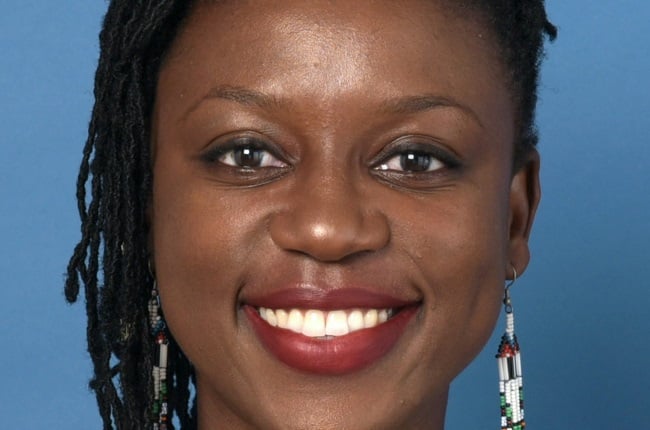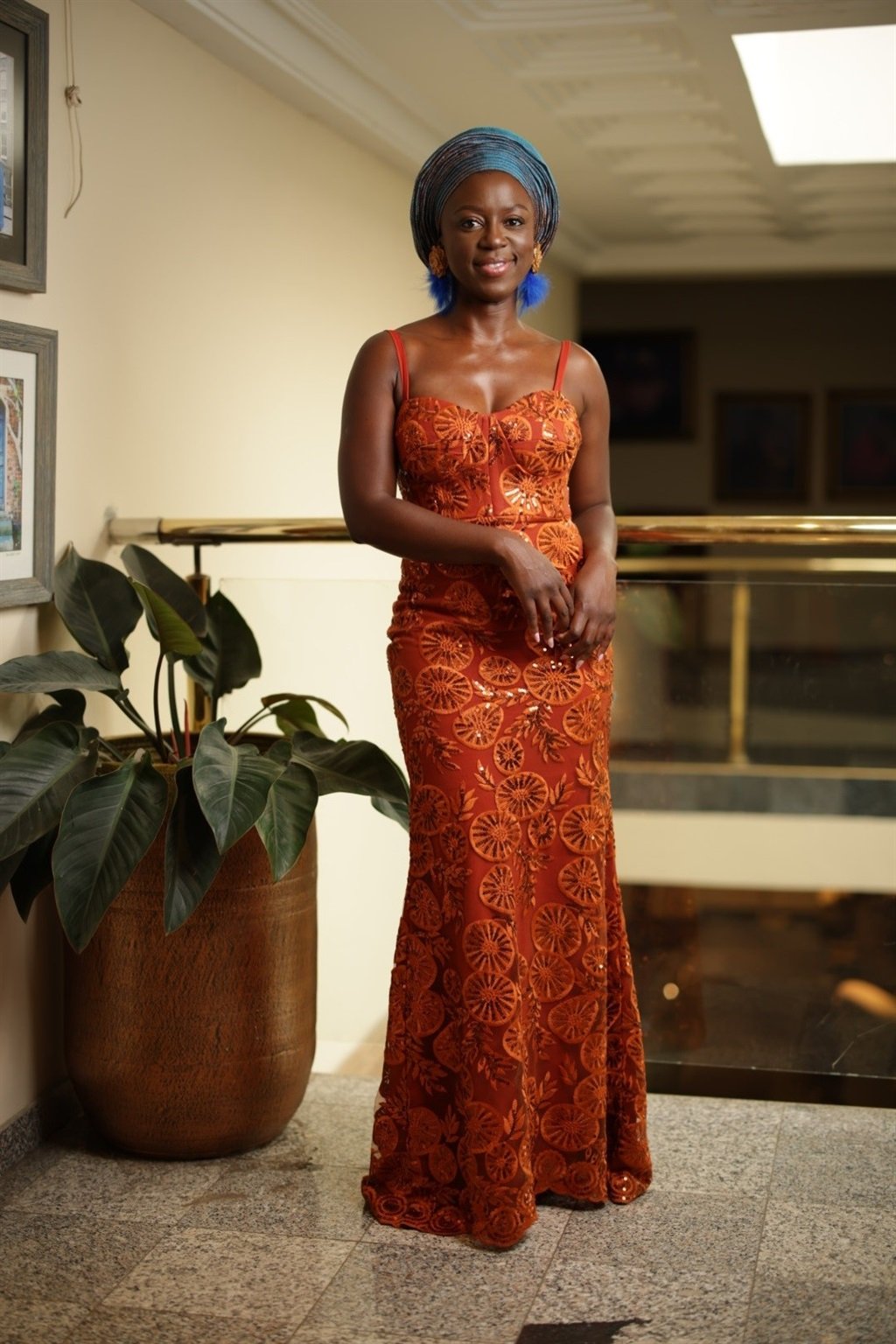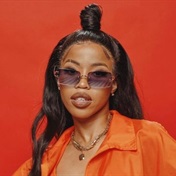
She had an aptitude for science and was that kid who would grow up and become a doctor.
But a high school play changed that plan.
Her high school usually did a Shakespeare production each year – until the audacious adolescent Tendayi Nyeke (now 38) decided it was time to put on a stage play that reflected the reality of being a teen in post-colonial Zimbabwe where anything, like the American dream, seemed possible.
“I was just, like, ‘Why are we doing Twelfth Night – again?’ We don’t relate to this. We don’t even talk like this.
“And I think I’d just read Chinua Achebe and I was getting all woke and stuff,” she laughs.
“So my drama teacher said, ‘Write your own play, then.’
“And I said, ‘Fine. I will.’
And write it, she did, with the help of her friends.
“Schools from around the country came to see the play.”
The production was a success, so much so that the teen now felt she could never imagine herself doing anything but the arts after high school.
She had to get her parents’ buy-in, so she pitched the idea of veering from the original plan of studying medicine very casually to her parents as: “Come see what I can do. If you think I’m half-good, then let me explore this more.”
After watching the play, her mom said, “You’re half-good. You can explore this.”
And that was the beginning for the development executive at Triggerfish, a leading African animation studio.
Tendayi, who was a co-creator of Our Perfect Wedding, is a firm believer in women backing themselves, accomplishing great feats for themselves and attempting the 'impossible' in spite of fear.
“So I’d love women, whatever sector they’re in, to not be afraid of the unknown because the unknown will make itself known.”
She is currently supervising producer of Disney+ Original’s African animated sci-fi anthology, Kizazi Moto: Generation Fire, which is executive produced by Oscar-winning director Peter Ramsey (Spider-Man: Into The Spider-Verse).
Read more | 30 Inspiring Drum Women | Giving women a seat at the table is only half the job – Rorisang Lebethe
For many creatives, there comes a time when you have to choose between the craft and the bag.
Tendayi doesn’t think that’s a sacrifice talented people in this multi-billion US dollar industry should have to make, though.
It’s why she, a creative at heart, decided to enrol for an MBA in Music and Creative Industries (which she graduated from with distinction) at the Henley Business School.
She wanted to figure out how she could play a part in creating a platform for creatives to just do the work that sets them alight without feeling like they have to make tough compromises.
“When you get into the creative industry, you think the path is quite limited. In film school, I remember thinking I want to help creative people have great environments to make amazing work.
“I want to create an environment for creative people to succeed and excel – not knowing that that’s what’s called a producer or a creative executive.
“I knew that I could write, I knew that I could direct and I knew that I could organise.”
When she began working, she started out as an entertainment journalist, which she did not enjoy because she wanted to get into the meatier stuff. Then she started getting directing work but was constantly frustrated by the fact that she was “at the mercy of a producer” who could dictate who gets work and when.
“I also just looked around at my surroundings and thought the culture of the creative industry is just so unhealthy in places where exploitation happens. So I thought, what if I was empowered to influence the environment?
“And I also thought I’m pitching ideas and people keep telling me there’s no budget, and why not, so I thought, ‘You know what? If I could just understand the business brain, then I’d be more empowered’.”
That’s how she ended up enrolling for her MBA in 2014, with a lot of encouragement from her loved ones.
“I remember a friend of mine was doing her MBA at GIBS (the University of Pretoria-affiliated Gordon Institute of Business Science), and she said, ‘I listen to you talk, and I feel like you’ve got the same aptitudes as an MD of Nedbank because your brain is asking similar questions. Why don’t you do an MBA?’
“And I said, ‘Oh, I don’t know. Oh, I don’t know.’
“And she said, ‘I think you can do it.’
“So I applied, and I actually got rejected the first time because I didn’t have enough management experience – according to them, because in the creative industries it’s so limited. So I had to motivate that I run a set and a set is so many people and so on, and they were, like, ‘Okay, that looks like management experience.’
“The outcome of doing that MBA was absolutely understanding the ecosystem of business and that even, though it’s creative, it’s a product and has to speak to multiple stakeholders, including the money people. So it’s been incredibly empowering and I’d encourage anyone who’s interested in the bigger picture to do it.
“And I think it actually has helped in the last few years of my career, being an executive now, because I am entrusted with doing strategy and all of that kind of stuff because I understand how to frame it. So an MBA is absolutely valuable, for sure!”
The South African entertainment industry is notoriously hard on practitioners. And yet our stories are so compelling and powerful. As a development executive at Triggerfish and supervising producer of Disney+ Original’s Kizazi Moto: Generation Fire, she has that kind of platform she has always wanted – to create environments that creatives need to flourish.
It is one of the perks of working in production, she says, it creates employment opportunities for many more people. And this is a core value for Tendayi: creating opportunities for others.
The partnership with Disney + resulted in a 10-part collection of animated sci-fi films by creators from Zimbabwe, Uganda, South Africa, Nigeria, Kenya and Egypt.
Cast members from across the continent include Florence Kasumba (Black Panther: Wakanda Forever), Kehinde Bankole (Blood Sisters), Pearl Thusi (Queen Sono), Hakeem Kae-Kazim (Hotel Rwanda, Godzilla vs. Kong), Sheila Munyiva (Rafiki), Stycie Waweru (Supa Modo, Supa Sema), and rapper Nasty C (Blood & Water).
Tendayi traces her go-getter spirit to being from the vibrant capital city of Zimbabwe, Harare.
While she was still quite young, her family moved out of the city to a farm, which is where she grew up and remained to complete her final high school years when they emigrated to the UK. Tendayi then went to Australia to study film and TV production at Griffith University before moving to South Africa, where she has done everything from presenting, script writing, directing and content producing to commissioning editing.
Being an ‘outsider’ can shape one in interesting ways, forcing more self-reflection which can be productive and serve as creative fuel.
“I’ve gotten more aware of it in my 30s – and, actually, living in South Africa made me more aware of it,” says the 38- year old.
“When you’re in your home country, your default setting is just I am. You’re very at ease because you’re accepted – I’m Shona and most of the people around me speak Shona.
“And then you move to South Africa, and there are all these different sub-groups, of which you are none. So you become a minority. And the way you grew up becomes foregrounded because you’re seen as different.
“So I think growing up in Zimbabwe and living in different countries has given me whole acceptance of who I am and just the dignity in that. I also think, because I grew up in post-colonial Zimbabwe, I had that ‘you can do whatever you want, it’s all up to you’ mind-set.
“I was raised by a father who was, like, ‘Don’t wait for a man to get you a thing. If you want a house, have it yourself’, ‘Get 100%, if you can, at school – for yourself’.”
“So I think that taught me that you have the tools to do whatever you want in life. And where there’s a gap, you’re actually able to fill it if you seek out how to fill that gap. But it’s up to you – you hold your own path.”
“We essentially take ideas from seed to getting them green-lit by a studio.”
The development executive uses the example of the Kizazi Moto anthology series to illustrate her role.
“It started out as a concept,” says Tendayi. “What do people watch after Black Panther?
“There’s obviously interest in African sci-fi or Afrofuturism, which is the American term. So what do we give people to watch next?
“Working with people you do a bit of research and find an entry point. In our particular case, we briefed out.
“We went to Disney and we were, like, ‘Hey, there’s an audience for this stuff, there’s a demand for this stuff, there’s an emerging animation industry, please support us doing a slate.
“They said, ‘Okay, we’ll give you money to pitch and find the storytellers on the continent.’
“So a development executive finds these ideas and the people to tell these stories and you literally walk with them to develop this idea.
“It may start off as a paragraph of something, but now you need a pitch deck and are asking what’s the story arch? Where is it going? And you’re working as a story editor in collaboration with them.
“So you are developing this idea and you get it up to a certain level, then you pitch back.
“There are different way to organise a business but you, basically, start off with a seed and by the end, you have a series.”




















